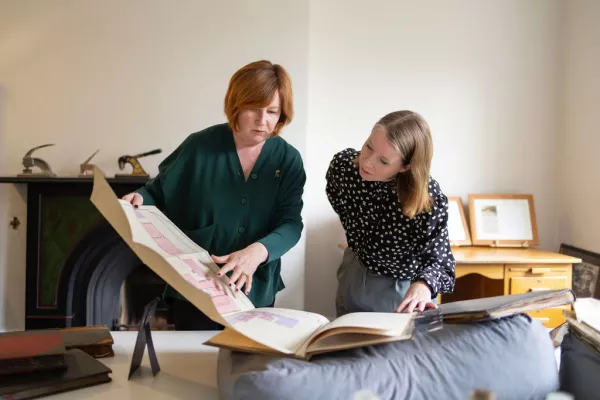Irish Distillers has launched a partnership with the Digital Repository of Ireland (DRI), the national body charged with providing long-term, sustained digital preservation and access to Ireland’s humanities, cultural heritage, and social sciences data.
The partnership will see records from the Irish Distillers archive digitised and uploaded to the repository and made openly available from anywhere in the world.
Archival Records
The Irish Distillers Archive has extensive archival records documenting the history and heritage of Irish Distillers. This includes records dating back to the eighteenth century created by John Jameson & Son, John Power & Son and the Cork Distilleries Company before the companies merged to form Irish Distillers in 1966.
Preserved in the archive are items such as minute books documenting the workings of Irish Distillers’ historic distilleries and the companies that ran them, handwritten ledgers containing financial records, some dating from the late 1700s, as well as more modern commercial records, historic mashbills and labels from all over the world which show the global reach of Irish whiskey over 100 years ago.
'Historic Relevance'
“The story of our brands and distilleries has significant social and historic relevance," said Carol Quinn, head of archives at Irish Distillers.
"Brands such as Jameson have a lasting historical legacy in terms of distilling records, wage books, photographs and other artefacts which we preserve at our archive in Midleton.”
DRI Portal
Irish Distillers is the first Irish commercial company to partner with the DRI in this manner.
Work has already begun on identifying suitable archives from the collection at Midleton. Once digitised, the selected materials will be uploaded to the DRI portal over the next 18 months.
'Rich Resource'
“We are delighted to share the news of our new partnership with the Irish Distillers Archive," said Dr Lisa Griffith, interim director at DRI.
"They are the first commercial archive to make its records available for open access online through the Digital Repository of Ireland.
"This will provide ground-breaking access to their archive, allowing researchers to investigate these collections from a wide range of angles, and share this rich resource with the wider public.”









